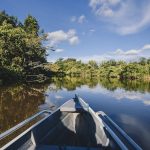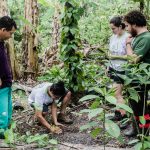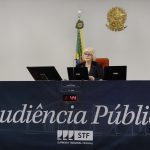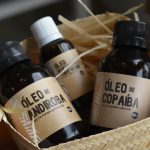[:pb]Estrutura foi construída por meio do projeto Cidades Florestais, com recursos do Fundo Amazônia/BNDES
Por Henrique Saunier
Fotos: Rodrigo Duarte
Executado pelo Idesam, o projeto Cidades Florestais inaugurou na última quinta-feira (23/jan) uma miniusina de beneficiamento de óleos vegetais amazônicos na Reserva de Desenvolvimento Sustentável (RDS) do Uatumã, município de São Sebastião do Uatumã. Com investimento de R$ 400 mil, a miniusina é a primeira de duas novas estruturas construídas pelo projeto, que também já promoveu melhorias em outras três usinas já existentes nos municípios de Carauari, Silves e Lábrea.
O evento contou com a participação de representantes do Fundo Amazônia, do Banco Nacional do Desenvolvimento Econômico e Social (BNDES) e do Governo do Estado. A estrutura vai beneficiar diretamente mais de 300 famílias, diversificando a fonte de geração de renda e fortalecendo o empreendedorismo social na região.
O foco da produção da usina é atender principalmente o mercado de insumos para o setor de cosméticos, ao beneficiar óleos de buriti, breu, priprioca, andiroba e copaíba, além de manteigas de cupuaçu e tucumã.
Para Elisângela Cavalcante, agricultora e produtora extrativista da RDS do Uatumã que há muitos anos trabalha com o plantio e coleta de tucumã (entre outras espécies), a estrutura recém-inaugurada traz um novo olhar para o fruto. “A gente não aproveitava o caroço, a amêndoa do tucumã, então a miniusina é uma esperança para esse reaproveitamento para uma geração de renda para a nossa família e toda a comunidade também”, ressalta Cavalcante.
A indústria tem uma capacidade produtiva mensal de 3 toneladas de óleos fixos, além de 90 litros de óleos essenciais. Caso atinja sua capacidade total de produção, a miniusina pode gerar uma receita média de R$ 850 mil aos comunitários da RDS.
“A miniusina do Uatumã vai gerar produtos com maior valor agregado aos comunitários da RDS. Isso vai fazer com que os associados da RDS que forem trabalhar na usina tenham um ganho de renda maior, para moradores e para a Associação de Produtores que vai fazer seu gerenciamento”, ressaltou André Vianna, coordenador do projeto Cidades Florestais.
Cidades Florestais
Iniciado em 2018, o projeto Cidades Florestais tem como propósito promover a economia florestal de municípios do interior do Amazonas. Esta promoção se dá por meio do fomento a cadeias produtivas florestais madeireiras e de óleos vegetais, com organizações de produtores nos municípios: Apuí, Carauari, Itapiranga, São Sebastião do Uatumã, Silves, Lábrea.
“A Bioeconomia no interior da Amazônia deve ser vista pelo potencial do uso múltiplo da floresta, e o Cidades Florestais estrutura associações para produção diversificada de madeira, óleos, essências e manteigas vegetais amazônicos”, destaca Carlos Gabriel Koury, Diretor Técnico do Idesam.
Nos primeiros anos de atividades, o projeto conseguiu viabilizar a comercialização de mais de 8 toneladas óleos vegetais por comunidades extrativistas, com um faturamento superior a R$ 400 mil, beneficiando mais de 90 produtores. Um potencial de mais de 300 árvores para uso não madeireiro já foi mapeado. Para uso madeireiro, um total de 5,2 mil hectares em áreas produtivas foi licenciado para manejo florestal comunitário, com apoio do projeto apenas na RDS do Uatumã. Ao todo mais de dez mil árvores já estão registradas no aplicativo.[:en]The strcuture was built due to the Cidades Florestais Project with resources from the Amazon Fund/BNDES
By Henrique Saunier
Translated by Felipe Sá
Photos by Rodrigo Duarte
Carried out by Idesam, the Cidades Florestais Project (Forest Cities Project) opened last Thursday (01/23) a mini-plant to process vegetable oil from the Amazon in the Uatumã Sustainable Development Reserve (RDS, in Portuguese), municipality of São Sebastião do Uatumã. With an investment of R$ 400 thousand, the mini-plant is the first of two new structures to be built by the Project that has already improved other three plants located in the municipalities of Carauari, Silves and Lábrea.
Representatives of the Amazon Fund, the National Bank for Economic and Social Development (BNDES) and the State Government were present at the event. The structure will directly benefit over 300 families, diversifying the source of income generation and strengthening social entrepreneurship in the region.
The plant’s production will mainly supply the cosmetics sector, by benefiting buriti, breu, priprioca, andiroba and copaíba oils and cupuaçu and tucumã butters.
For Elisângela Cavalcante, farmer and extractive producer in the Uatumã RDS who has been working with tucumã (among other species) planting and collection for many years, the newly opened structure brings a new perspective to the fruit. “We did not take advantage of the stone, the tucumã almond, so the mini-plant is a hope for this reuse and that this generates income for our family and the whole community as well”, says Cavalcante.
The industry has a production capacity of 3 tons of fixed oils, in addition to 90 liters of essential oils a month. If it reaches its maximum production capacity, the mini-plant can generate an average revenue of R$ 850 thousand to community members of the Uatumã RDS.
“The Uatumã’s mini-plant will make products with greater added value to the community of the Sustainable Development Reserve. This will make the Rerserve’s associates who go to work at the plant have a higher income gain, for residents and for the Producers’ Association that will manage it”, said André Vianna, coordinator of the Project.
Cidades Florestais (Forest Citites Project)
The Cidades Florestais Project started in 2018 with the purpose of promoting the forest economy of municipalities in the interior of the state of Amazonas. This takes place through the promotion of forestry and vegetable oil production chains, with producer organizations in the following municipalities: Apuí, Carauari, Itapiranga, São Sebastião do Uatumã, Silves and Lábrea.
“Bio-economy deep in the Amazon must be seen through the potential for multiple use of the forest, and Cidades Florestais structures associations for the diversified production of wood, oils, essences and vegetable butters from the Amazon”, highlights Carlos Gabriel Koury, Idesam’s Technical Director.
In the first years of activities, the Project enabled the sale of over 8 tons of vegetable oils produced by extractive communities, with a turnover of more than R$ 400 thousand, benefiting more than 90 producers. A potential of more than 300 trees for non-timber use has already been mapped. For timber use, a total of 5,200 hectares in productive areas was licensed for community forest management with the Project’s support only in the Uatumã RDS. Altogether more than ten thousand trees are already registered in the app.[:]

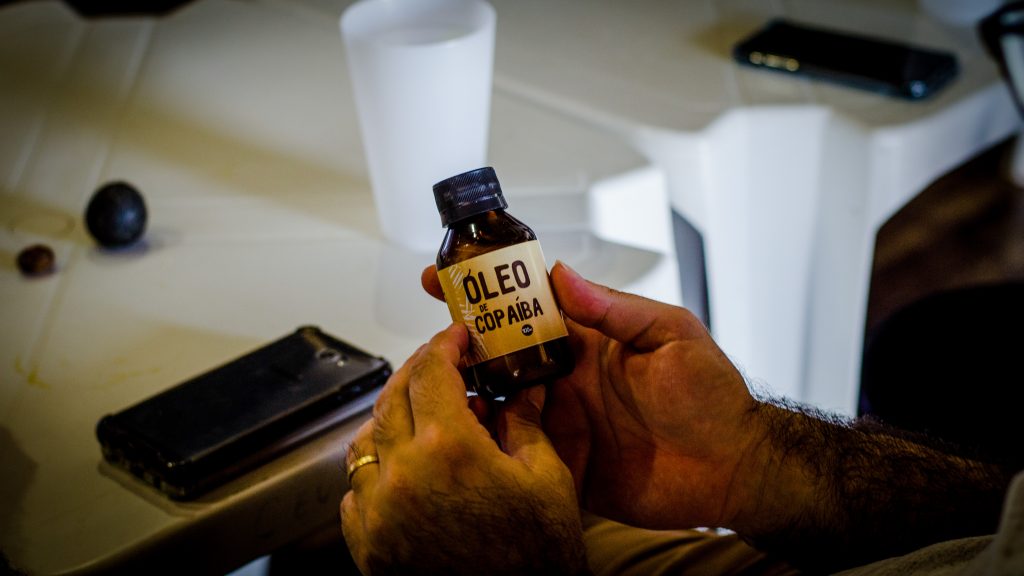
![[:pb]O Idesam apoia produtores de Copaíba nos lugares mais remotos, como no PAE Aripuanã-Guariba (Apuí), um assentamento com cinco comunidades que escoam sua produção de óleo com a ajuda logística do instituto, que também promove cursos de boas práticas sustentáveis de extração e oficinas de gestão de negócios, financiado pelo edital Floresta em Pé/FAS.[:]](https://dev99.idesam.org/wp-content/uploads/2019/09/IMG_8440-e1567616658506-150x150.jpg)
